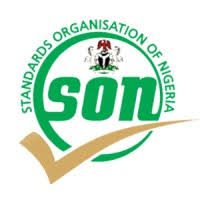
We build digital solutions to bridge gap in insurance sector — Octamile
Abimbola Abatta
An insurance technology company, Octamile, has said its activities border on building solutions to insure businesses, property, and lives of Nigerians.
Head of Content Marketing at Octamile, Princewill Akuma, disclosed this on Thursday at the sidelines of the Information Communication Technology and Telecommunication (ICTEL) Expo facilitated by the Lagos Chamber of Commerce and Industry (LCCI).
The 8th edition of the ICTEL Expo, a two-day event, took place at the Muson center in Lagos.
In an exclusive interview with Nigerian NewsDirect newspaper, Akuma revealed that as Nigeria further embraces digital economy, Octamile is committed to bridging the gap in the insurance space while also automating the process.
In his words, “At Octamile, what we do is build technology solutions for insurance companies as well as for business.
“Traditionally, if you insure your car, it means when your have a car accident, you have to take pictures, and the insurance company has to come and see it. And it takes a whole lot of process. It can take as far as 6 weeks, 2 months or even more.
“But what we have done is to bridge that gap in the insurance space and to automate that process with some of our insurance partners. Right now, they can pay out their claims in a short span of 60 minutes.
“In Fintech, for instance, if you have a savings in any of the top Fintech platforms and you want to remove it the day it expires, you can do that instantly, so why shouldn’t that happen in insurance? That gave birth to our solution.
“Before the whole digital space, we had something called insurance distribution. If you have a phone or laptop, and you want to buy insurance, you will typically go to the office of an insurer and fill forms. Although some insurance companies are now going online, COVID-19 revealed that even that online is not enough.
“So, what have we done with insurance distribution is something called embedded insurance. It is a new phenomenal in the insurance space and what it simply does is as you are buying your phone online and they are delivering it, you can embed device insurance. As the phone is being delivered, it’s being insured. The same with when you buy food from a food app, and other platforms.
“We also embed insurance in already existing apps, so you don’t have to download insurance apps for each insurance you want to do. So it brings a lot of seamlessness.
“There is also risk assessment in insurance. If you are bringing a new car to an insurer as at January this year, what that car is worth as at September 1st cannot be the same. So there’s a lot of risk in the industry. But what we have done is to create technology solutions that help them.
“We have different technology solutions across different platforms that we are working with. Our ultimate goal is to simplify insurance in a way that a woman that can take a loan in her village somewhere can decide to buy an insurance for as low as 500 naira. Insurance is not that expensive, but the cost of the insurer going to that village is. Digital technology has made it easier as millions of Nigerians have smartphones. But whether you have a smartphone or not, you’d be able to purchase insurance. If it’s to make a claim, you’d be able to make a claim.
“We are building solutions that would insure the health of businesses. We want to protect more people from financial loss. The woman in the village and young person in the village also can access different sources of insurance protection, so that’s what we basically do at Octamile.”
When asked if the support from the government is enough, he said, “I think the government has done great things, and the Nigerian insurance sector is doing well in its efforts to digitalize the process. They are clamping down people who are scamming people in the industry, those who are not really legal.
“They are doing their part, and I feel individuals need to play their own roles for that match to really happen. Then we can really move forward.”



